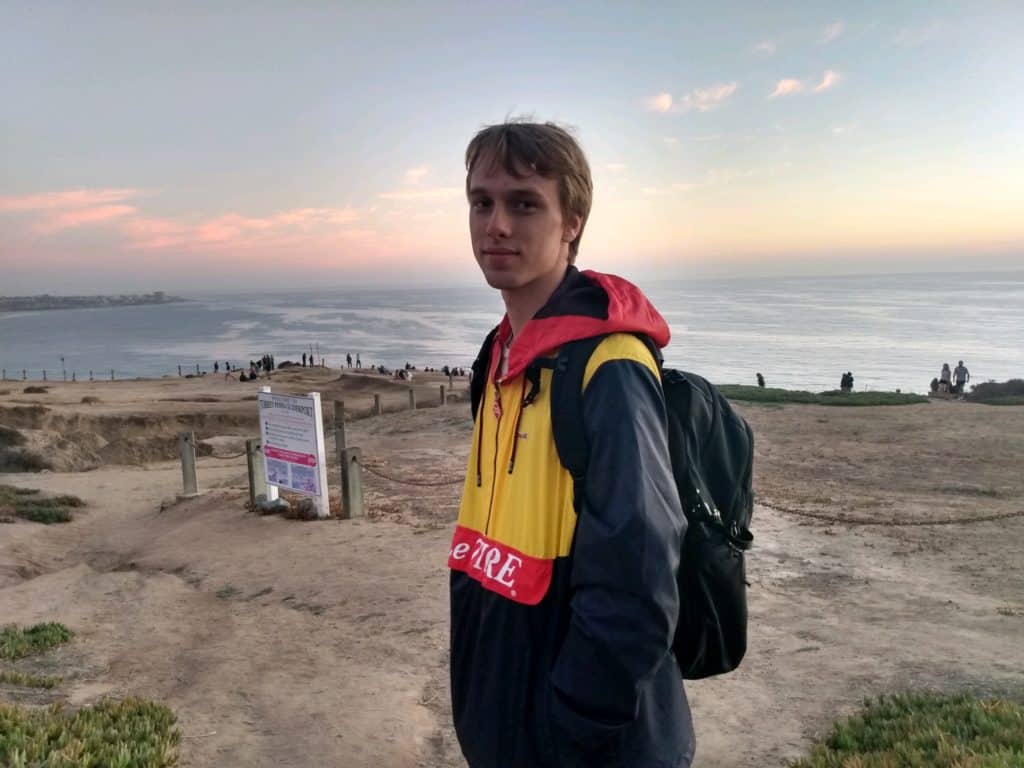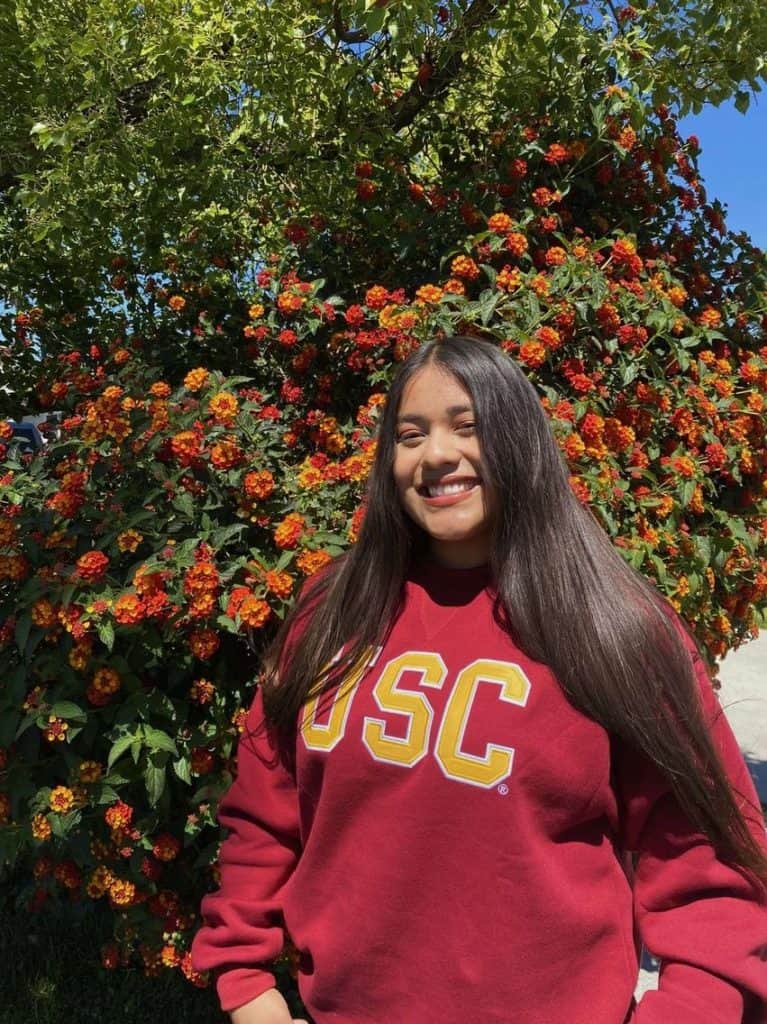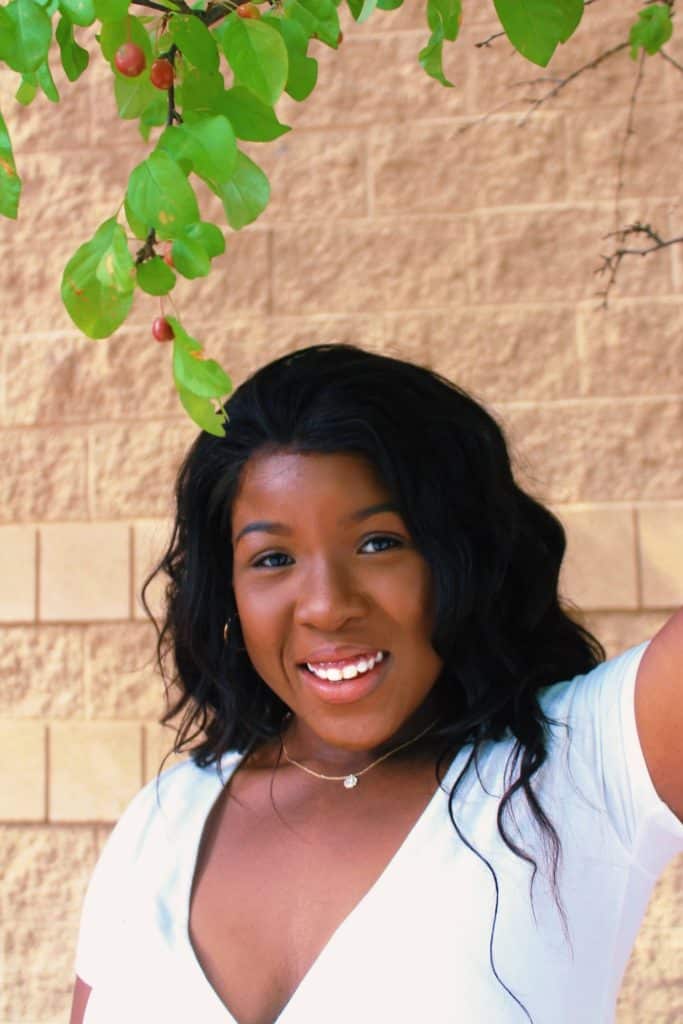Excited undergrads anticipate in-person opportunities as campus reopens
By: Eric Ruble
There’s nothing like the buzz of activity on a college campus and this year, the anticipation of returning to USC is even more significant. New first years and most incoming sophomore students will get to attend in-person lectures, labs and courses for the first time.

Students’ excitement is building as they look forward to new opportunities to speak with faculty, conduct research and study together in ways not possible since early 2020.
Beyond academics, students will be able to better participate in clubs, volunteer work and social life as residence halls reopen.
“I’m just a person who likes seeing people’s faces,” said urban studies major Timothy Labounko, who will be starting his sophomore year on campus.
Drawn by outstanding research centers and faculty, like Assistant Professor Geoff Boeing, Labounko already began working at METRANS and now looks forward to taking Boeing’s in-person class on urban informatics this fall.
A self-described “transportation nerd,” one of his first adventures after moving to Los Angeles in March 2021 was riding the entirety of L.A. Metro’s light rail system. He will now be able to take an even deeper dive into all the city has to offer.
“There’s still a lot to see in L.A.,” he said.
Labounko already joined the rowing team and is ready to continue building friendships with its members and others he has met since enrolling in Price. He said he is especially looking forward to getting to know his peers in Price’s close-knit classes.
Similarly, incoming first year student Marlen Macias said, “I’m just excited to go on campus and have access to such a diverse community of students and professors. I’m really looking forward to getting involved in the student organizations and clubs.”

Macias, who is from Los Angeles, spent most of her senior year of high school learning remotely. She cannot wait to build her college social circle at USC.
She originally planned to study public policy at Price. However, she changed her major to urban studies and planning when she learned it was more aligned with her interests.
“A lot of other Latinx communities have already been researched, and I wanted to find something new, make new discoveries,” she said. “It was interesting to me how I was able to discover these things and pinpoint the areas that could use improvement and actually take the steps to address them and help the entire community.”
That led her to reconsidering her program of study.
“I wanted to broaden my horizons,” Macias said. “I want to help communities and I want to also incorporate my other interest, which is sustainability.”
Aishat Tiamiyu, another first-year student, also changed her major before classes began.
She planned to study business administration in the Marshall School of Business. However, her interests changed as the Black Lives Matter movement grew following the murder of George Floyd in Minneapolis. She switched her major to public policy.
“I wanted to do more studying in service,” said Tiamiyu, who is from the Minneapolis-Saint Paul area. “Until we can sit down and figure out solutions to the issues – whether it’s race, health care, economic status, all those things – nothing is really going to happen long-term.”
Among the courses she is most interested in taking: Citizenship in Ethics (PPD 240).

“I think I’m going to love [it]!” Tiamiyu said.
A public school student for 13 years and sister of a physician, Tiamiyu is particularly passionate about equity in the education and health care arenas. “Education is the foundation of everything. Once the education system is built fairly and equitable, I think we can make great progress in our nation.”
A similar principle, she says, applies to health care. “You can’t do the things that impact the world if you’re not healthy.”
Tiamiyu believes her future public policy degree will enable her to make what some would consider implausible policies a reality.
“My hope with public policy is that I can be not only in the conversation, but also the planning process, the thinking process of creating change,” she said. “I’m most excited for the unknown.”
This academic year will undoubtedly come with unforeseen challenges; but the trials of the past year and a half have not only prepared students for new obstacles. They have proven that Price scholars are beyond equipped to conquer them.